F150 Grinding Noise When Accelerating | Causes and Solutions
If you notice a weird grinding sound coming out of your F150 when accelerating, the issue
is likely to do with different aspects of your car.
It can be your transmission, a problem with your differential, a bad wheel bearing, a damaged CV joint, or a worn engine/motor mount.
Unexpected noises are never a good thing, that’s why getting it checked out by a mechanic for a proper diagnosis should always be your first course of action.
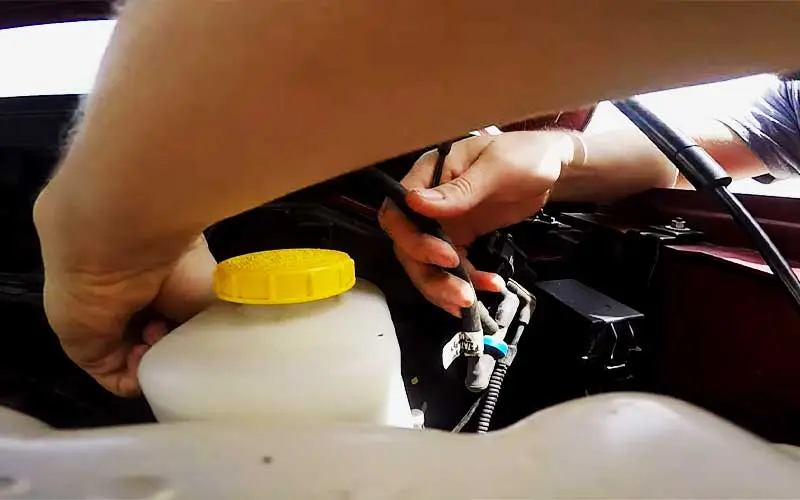
To learn more about those grinding noises when you’re accelerating, keep reading.
An issue with your transmission
Your car’s transmission is responsible for controlling the amount of power transferred from the engine to each wheel.
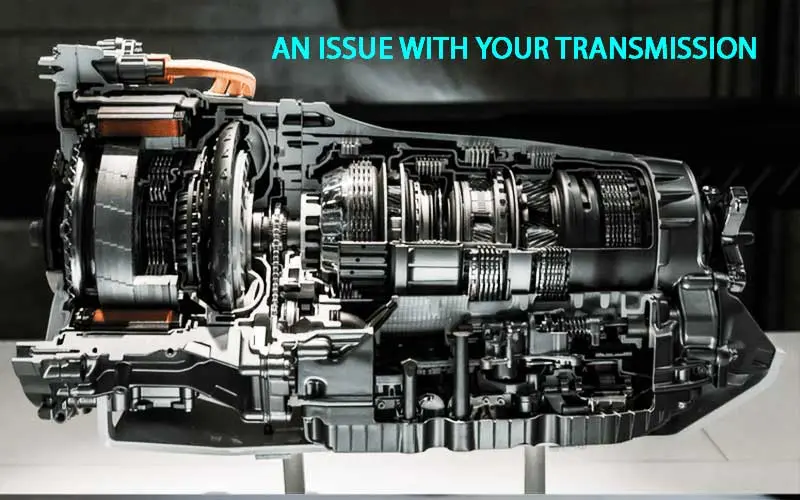
The problem
- The grinding noise likely has to do with your car’s planetary gear system. This system ensures that the speed of your car’s wheels match the speed of the engine.
- If your wheels and your engine are not in sync (hence the grinding), this can cause significant damage to your transmission.
- You may notice this grinding during acceleration or just when your car is in a specific gear.
The solution
- If you’re noticing grinding and the problem turns out to be the transmission, it will likely need replacing.
- Do not attempt to fix or replace your transmission yourself. Transmissions are complex, intricate machines and should be repaired or replaced by professionals only.
An issue with your differential
The differential is the part of your car’s drivetrain that allows your wheels to rotate at various speeds by taking power from the engine and delivering it to each wheel.
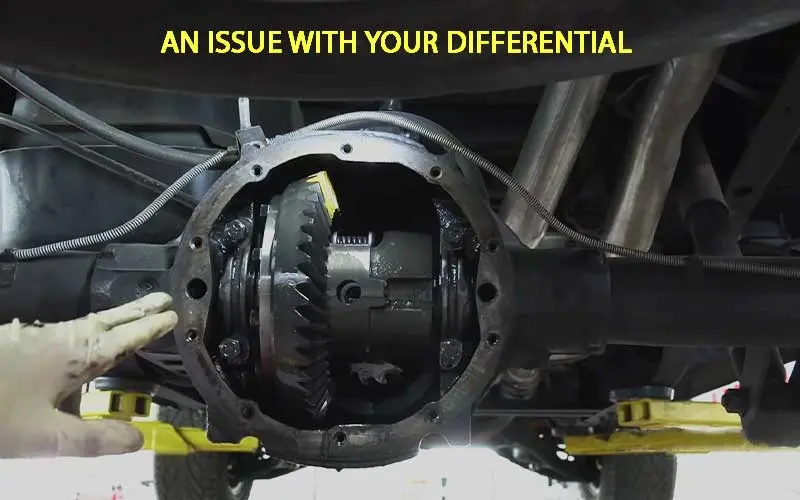
The problem
- Grinding or whirring sounds can mean the internal gears of your car’s differential system are worn out, and thus not working as intended.
- You’ll likely notice it when speeding up or turning your vehicle.
The solution
- If you notice the grinding and the differential is found to be the culprit, you’ll have to replace it.
- However, if you notice more of a whirring sound rather than grinding, the differential could just be low on fluid.
A bad wheel bearing
A wheel bearing is part of a wheel’s assembly and connects the wheel to its axle. Wheel bearings allow your car’s wheels to spin with a minimum amount of friction.
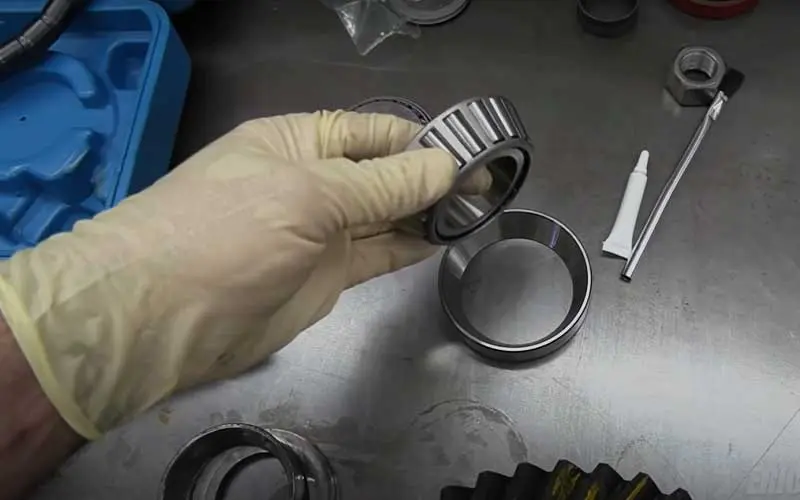
The problem
- A grinding noise when accelerating can mean a wheel bearing is damaged or worn out. This can impact and hamper steering, handling, and cause uneven tire wear on your vehicle.
- You’ll most likely hear the grinding sound when turning. A worn-out wheel bearing can cause issues for your transmission, CV joints, and wheel hubs.
The solution
- You’ll need to replace the worn-out wheel bearing. If you’re handy with cars, you can do this yourself.
The CV joint
Constant velocity joints connect the transmission to the car’s wheels—mostly on front-wheel-drive vehicles.
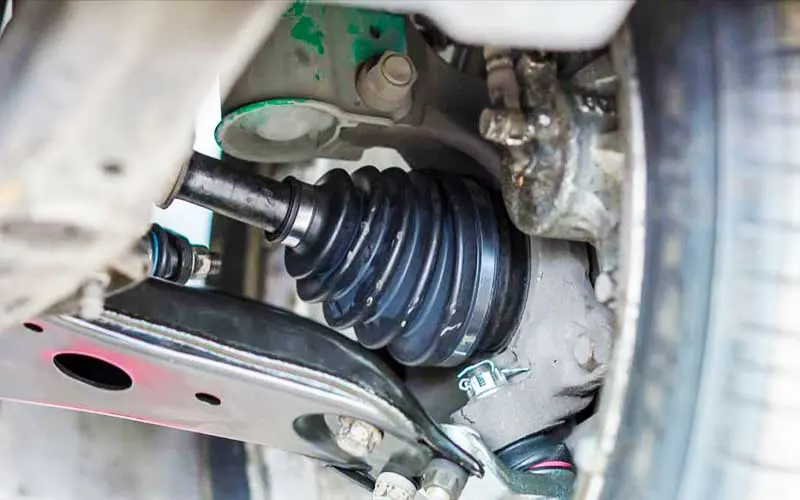
The problem
- If you hear grinding, clicking, or knocking as you accelerate, one of your car’s CV joints may be failing. If ignored, your car can get stuck in park anywhere.
- Another tell-tale sign of CV joint failure is grease on the inner edge of your tires. If you feel vibrations when driving, this could also be the CV joint.
The solution
- If a CV joint is worn out, it must be replaced. Luckily, you can save some money and do this yourself.
The motor mount
The motor or engine mount is what holds an engine in place. A motor mount is a sturdy piece of equipment—the average engine weighs around 300 lbs.
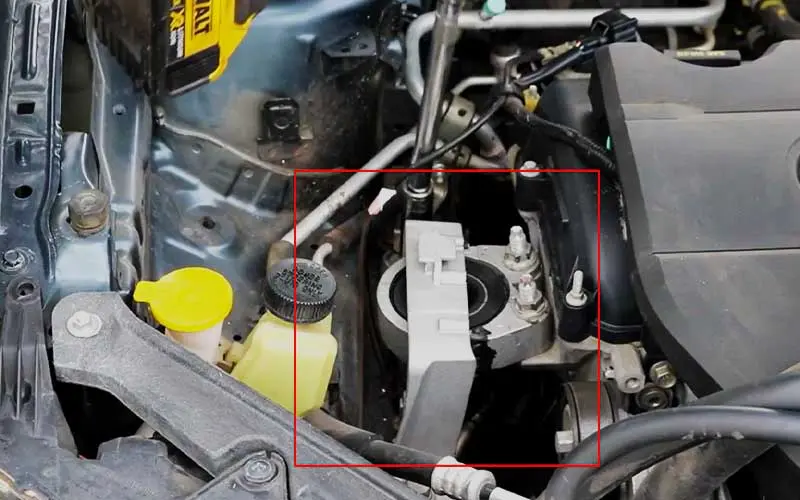
Motor mounts are made of metal, so they can corrode, break down, or become separated from the engine.
The problem
- If you hear a grinding sound when speeding up, your engine mount could be the problem.
- If so, this usually means that the motor mount has shifted or come unmoored, and the engine is shifting around inside the engine bay.
- A loose or unmoored motor mount can also impact your car’s serpentine belt, which can cause further damage by rubbing against the underside of the car’s swirl pot hose.
- An engine that is loosened or separated from its mount can end up resting on and damaging other components—and that can be expensive to fix.
The solution
- Fixing a worn or loose motor mount can be done by yourself if you have the knowledge and tools—specifically, you can spot weld it back into place.
Grinding noise in front
F150 trucks use a vacuum operated hub connect device called an integrated wheel end (IWE). Ford has experienced issues with the IWE that result in grinding noise F150.
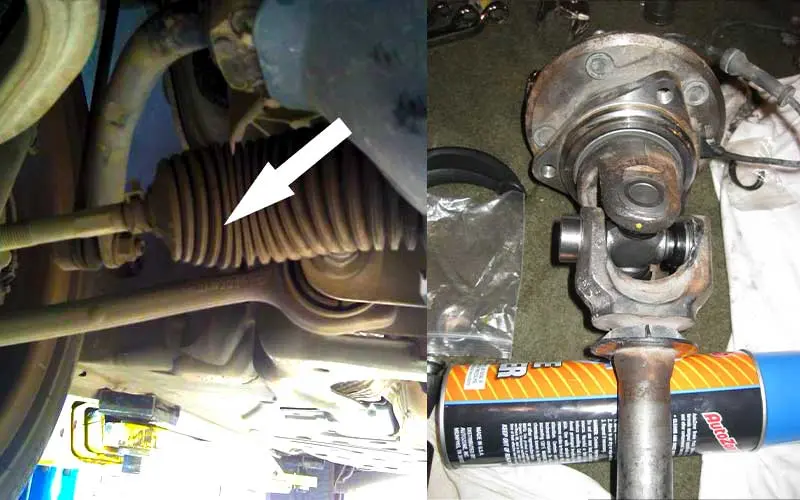
Ford has also issued a service bulletin 06-8-15 to address some of the problems associated with water ingestion into the IWE.
Intermittent grinding noise
- Some 2004-2006 F-150 vehicles built before 4/24/2006 may exhibit a noise in 2 wheel drive from the front Integrated Wheel Ends (IWE) and/or the 4X4 system being inoperative.
- The IWE solenoid may have ingested water and passed it to the IWE system causing water contamination in the vacuum portion of the system.
- A shorted IWE solenoid can set the codes C1979 and C1980. If either code is present, the 4WDH light will be inoperative.
- Those are the procedures to check for water inside your IWE solenoid.
- Replace the IWE solenoid. Torque the new design bracket and solenoid to 62 lb-in (7 With 12650D Nxm).
- It will be necessary to remove the vacuum lines from each IWE down at the wheels to check for water being present.
- If no water is present at the vacuum line at the IWE, install the new solenoid with bracket. Reconnect all vacuum hoses.
- If water is present, allow it to drain from the vacuum lines. Then follow the updated procedure outlined in 2006 Workshop Manual (WSM) Section 308-07A, Tests B21 and B22.
- These tests check IWE leak rates with vacuum and will remove any residual water from the IWE. Reconnect all vacuum hoses.
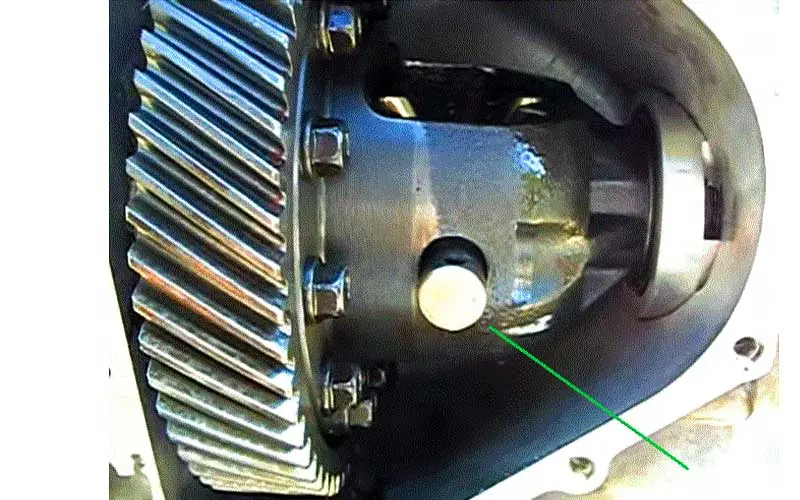
Conclusions
Strange noises coming out from your car are something that you shouldn’t underestimate for two main reasons.
Firstly, the quicker you solve a problem, the cheaper it will be in terms of costs and time. Secondly the longer you wait, the higher the risk of having major issues.

